Imagination drives innovation
Flagship Founder and CEO Noubar Afeyan kicked off the event, followed by the Head of Pioneering Intelligence Armen Mkrtchyan. Mkrtchyan spoke about the intersection of AI and creativity, challenging conventional notions and proposing approaches to enhance AI creativity. He touched on the role of imagination in driving innovation, saying: “Imagination is central to human survival and progress. It has been the driving force behind our ability to depict our past, explore the skies, and invent groundbreaking technologies. As we delve into the realms of science and creativity, let us remember Nikola Tesla's words: 'All of my inventions were conceived in my mind before they were realized in life.' Imagination, indeed, plays a crucial role in shaping not only our lives but the very essence of innovation."
Integrating AI in the life sciences
The first session of the summit was a panel discussion led by Flagship General Partner Avak Kahvejian on the role of AI in life sciences followed by another panel led by Flagship Academic Partner Gary Pisano on building AI-first bioplatform companies. Kahvejian spoke with leaders from MIT, NVIDIA, and Microsoft Research on the evolving role of AI in elucidating causal relationships in biology, emphasizing the need for better integration between experiments and model development in drug discovery, as well as the need for a collaborative spirit between biologists and technologists to enable scientific progress.
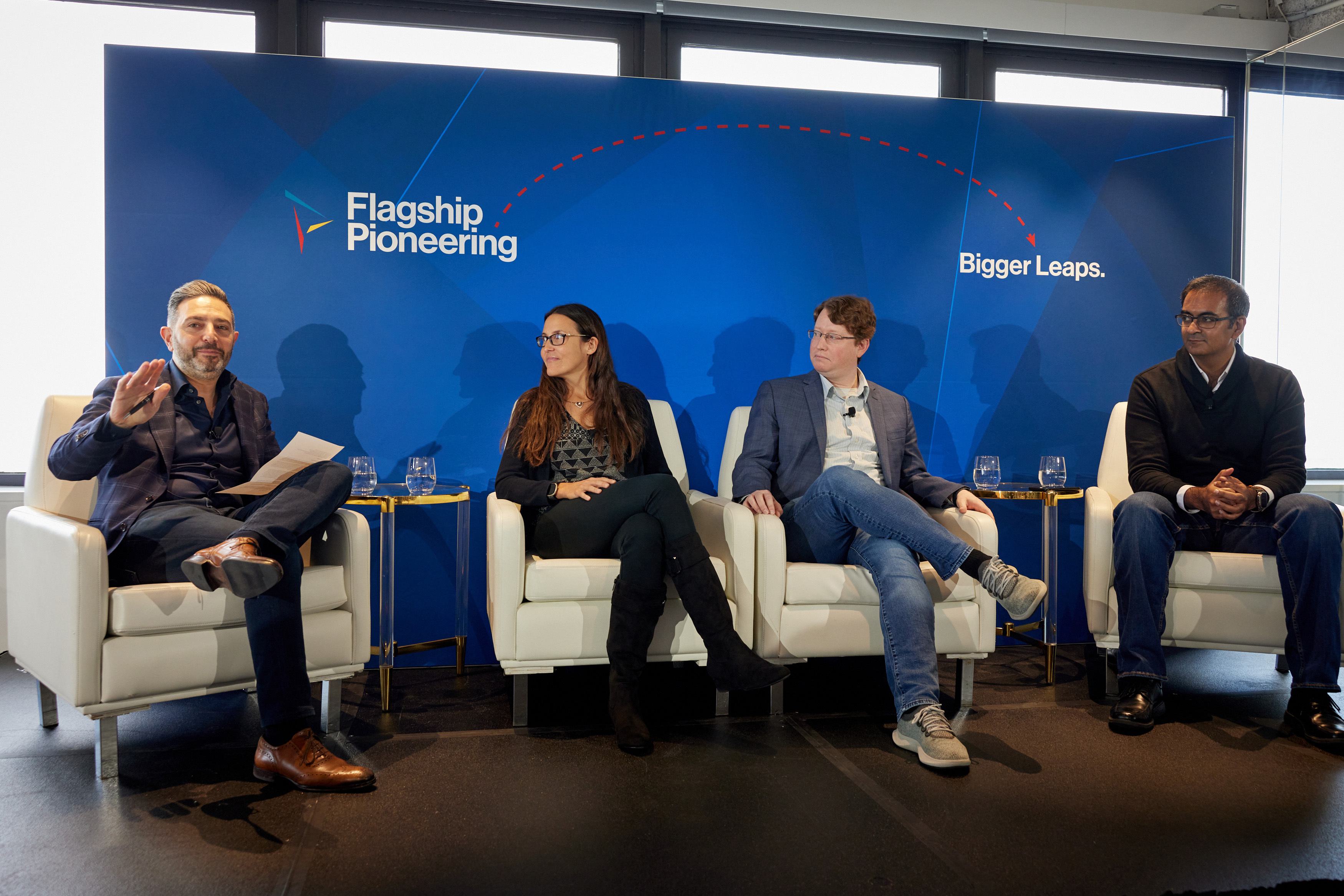
Pisano guided a discussion between the CEOs of Flagship-founded Montai Therapeutics, Generate:Biomedicines, Cellarity, and Apriori Bio on integrating AI throughout a biotech company. Speakers emphasized the need to dismantle organizational silos, adopt cross-functional approaches, and navigate challenges as the industry begins to leverage AI more broadly. Noteworthy was the recognition that the biotech industry is on the brink of an "engineering future," where AI scaling effects necessitate a reevaluation of organizational structures.
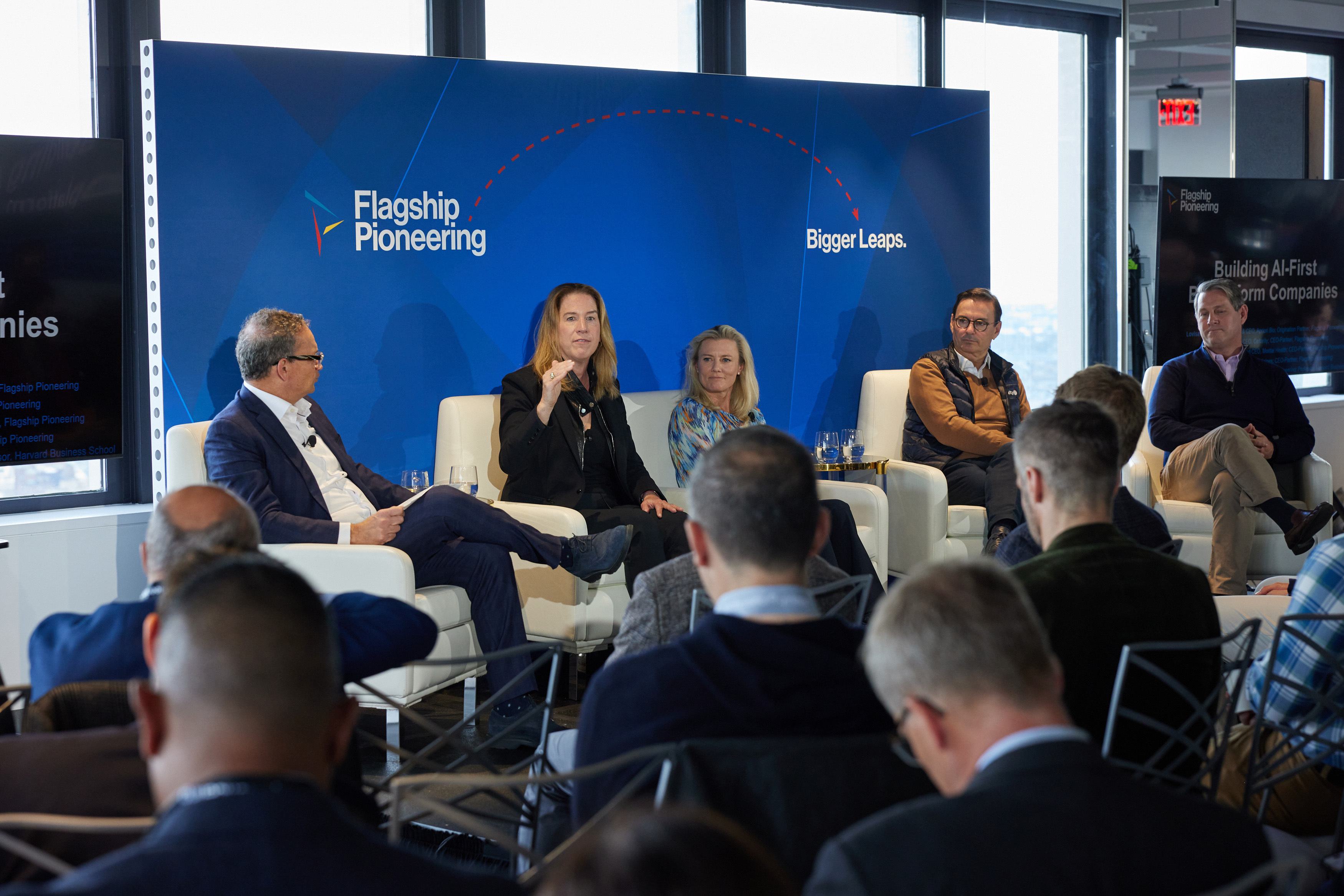
Large language models in medicine
The keynote was given by Peter Lee, Corporate Vice President of Research and Incubations at Microsoft. He presented AI as a tool and emphasized the criticality of gaining a true understanding of its strengths and limitations for effective application in medicine. He began with a live conversation with ChatGPT on the book Charlotte’s Web to illustrate the incredible power of large language models (LLMs), as well as their shortcomings. He demonstrated the application of ChatGPT in medicine by using it to assist in a fictitious medical diagnosis, revealing responses that sounded convincing yet were inaccurate, illustrating the need for human validation in incorporating LLMs in the medical field. He discussed some early applications of GPT-4 in medicine, including assisting in generating medical notes, reading clinical trial documents, and summarizing research papers. He described a future in which LLM performance is improved through the integration of other tools, comparing it to augmenting human mathematical capabilities with calculators.
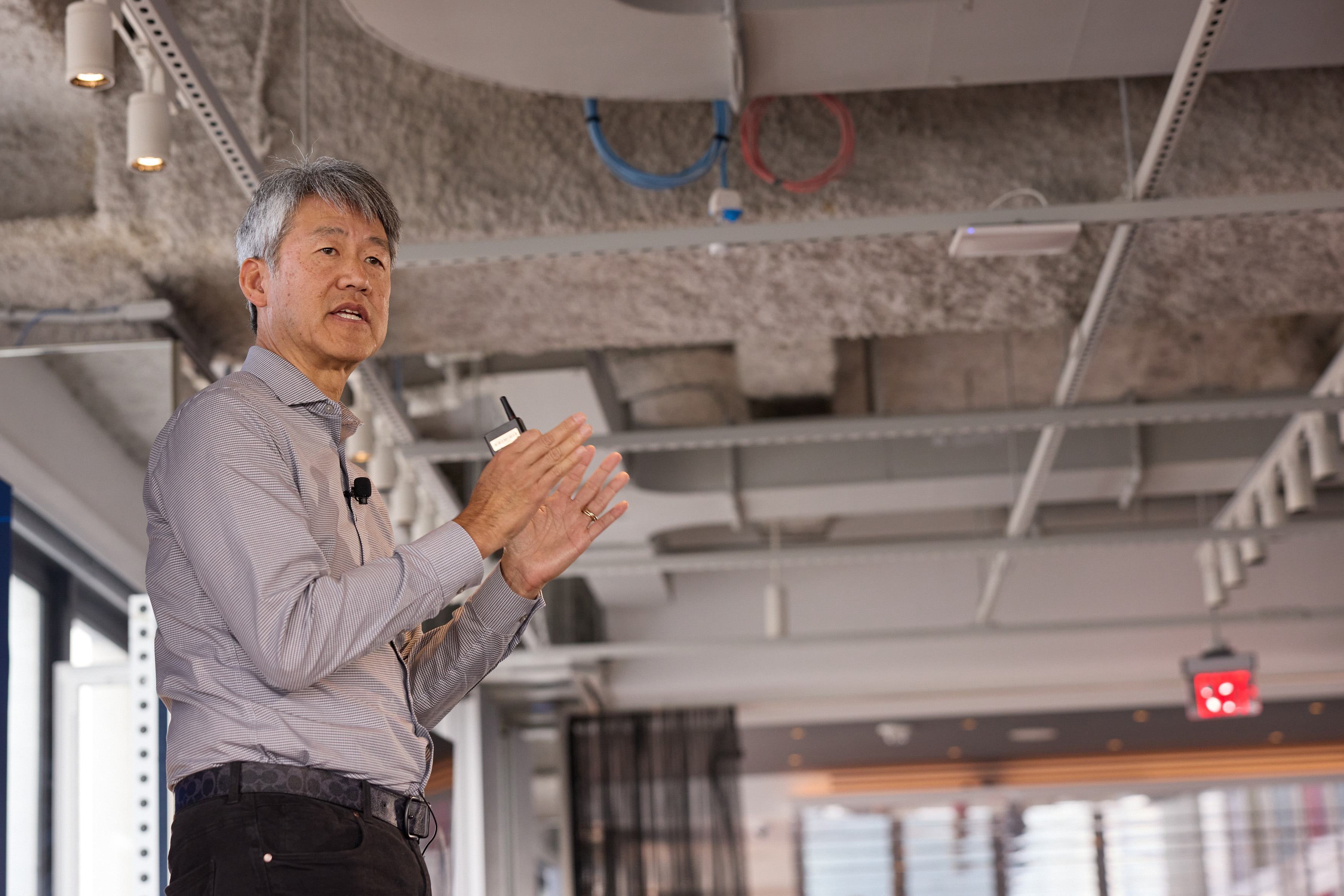
Advancing AI in biotech
Following the keynote, Lee joined a panel led by Flagship General Partner Geoffrey von Maltzahn on the future of LLMs with speakers from MIT and Mozilla.ai. The panelists emphasized the significance of open-source developers in advancing AI in science and medicine by fostering collaboration and standardization. They discussed challenges including small patient sample sizes and data standardization, as well as hallucinations (i.e., inaccurate or unconfirmed knowledge). However, speakers were hesitant to dismiss hallucinations as merely a flaw; instead, saying they could be viewed as a feature that offers opportunities for creativity. Looking forward, panelists envisioned a future not dissimilar to what we have today, “except that things that we’ve always dreamed about, that should have just worked, will start to work,” said one panelist.
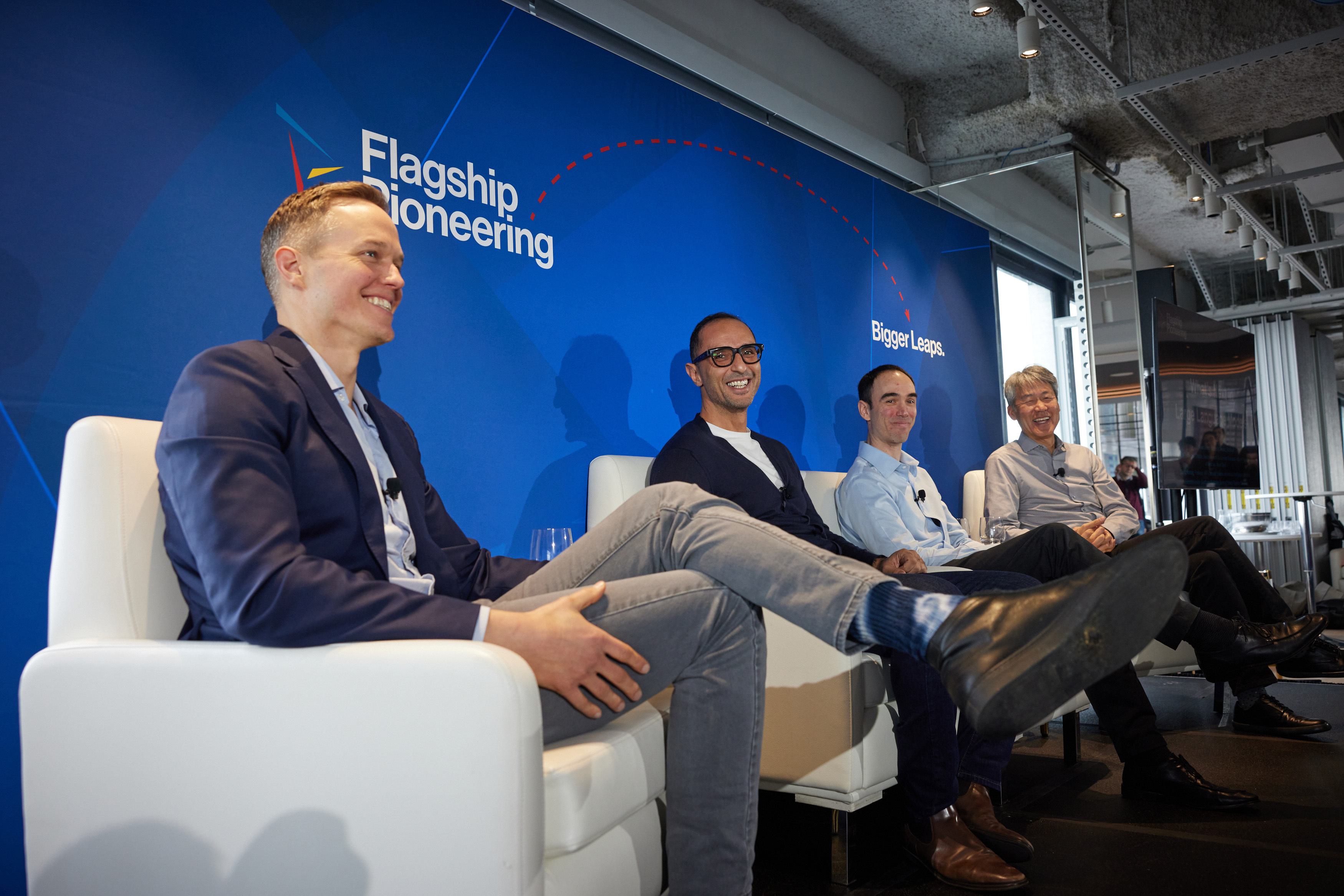
Speakers on the next panel explored AI's transformative impact on biotech, from predictive drug design to gene writing. Led by Flagship Senior Principal Molly Gibson, panelists from Valo Health, Moderna, Inari, and Tessera Therapeutics shared insights into sustainable food systems, groundbreaking gene writing platforms, and the integration of AI across organizations. Challenges in implementing ML-driven discovery engines and cultural shifts in traditional labs were discussed, emphasizing the need for adaptable AI strategies in the evolving landscape of biotech.
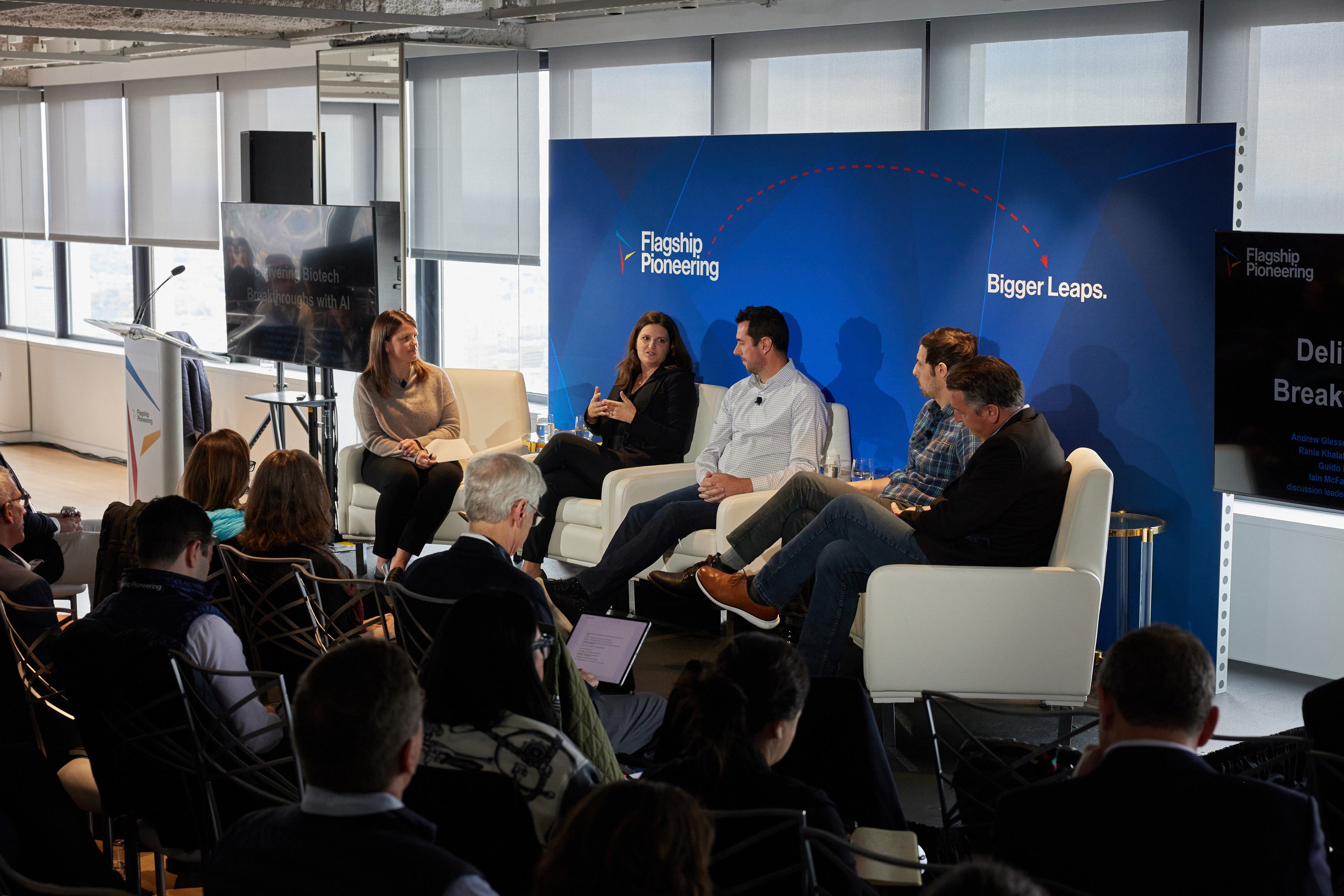
The human side of AI
Assistant Professor Marzyeh Ghassemi of MIT’s “Healthy ML” group gave a lightning talk on her research into the development of ethical AI and called for increasing regulation, establishing a culture of AI safety, and the need for diverse teams to address ongoing challenges in AI and health. A second lightning talk was presented by Professor Fernanda Viegas of Harvard and Google on human-AI interactions, particularly in medical diagnosis. She highlighted the significance of incorporating human expertise into AI system design for user-friendly and effective integration.
To provide a policy and regulatory perspective, U.S. Congressman Jake Auchincloss of Massachusetts joined Flagship Chief Communications Officer and Executive Partner Christine Heenan for a far-ranging conversation on AI regulation, biosecurity, national competitiveness, and the implications for different industries. When asked in which sectors he is most excited to see the impact of AI integration, the Congressman cited both biotech research and development and education, saying, “There are so many kids out there who are just never going to be in a classroom where their full potential can be realized. And to the extent that AI can mitigate that and augment and empower human teachers, it might end up being the biggest unlock of the technology."
Eyeing the future
The final panel led by Flagship Origination Partner Lovisa Afzelius focused on the next frontier of ML innovation with leaders from SandboxAQ, MIT, and Harvard. Speakers emphasized interdisciplinary collaboration, co-designing AI hardware and software, and predicted advancements in computing capabilities by 2030. The panel stressed the importance of moving beyond developing AI to simulate humans and advocated for human-machine collaboration to achieve better outcomes.
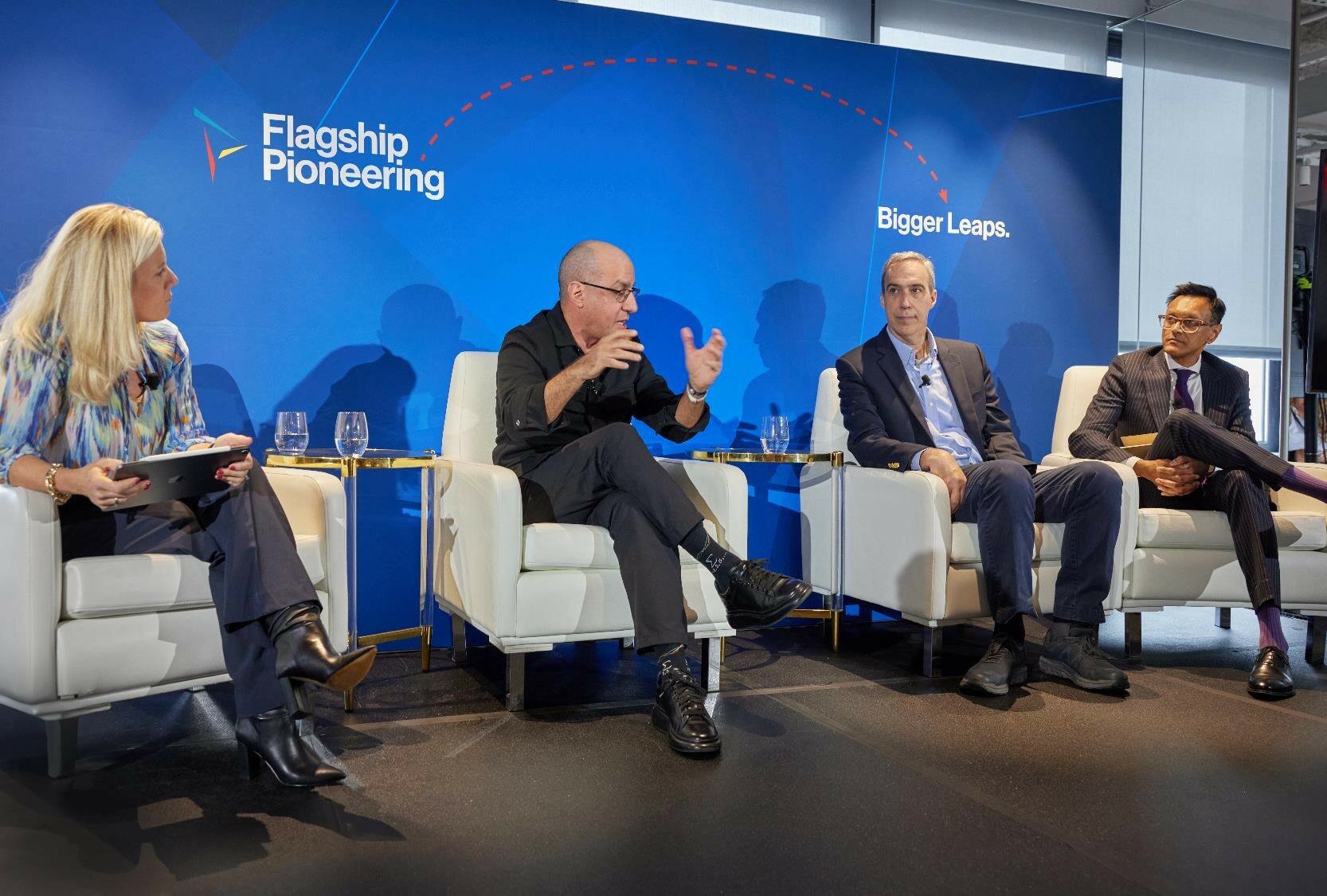
Concluding the day’s events was a Flagship FutureCast on pioneering the future of AI with Ryan Heath, Global Technology Correspondent for Axios, in conversation with Noubar Afeyan and Geoffrey von Maltzahn. They touched on programmable and precision medicines, our evolving understanding of disease, and AI’s role in reducing scientific uncertainty. Von Maltzahn painted a vivid picture of how AI is creating turbulence across scientific fields, saying, “We've all come from tributaries on the river of biology or various rivers of science. The river of machine intelligence is now flowing into that. And, I think with certainty, there are going to be rapids ahead that are going to destroy many of the vessels that we've built based on the design criteria that we've come from. … And so it's going to be about how to most beautifully figure out what vessels need to look like to navigate the world that's ahead of us.” Afeyan also remarked on the change he sees in biotech, saying an inflection point is imminent for the industry as AI and biotech become further intertwined, dramatically increasing the probability of success in developing new life science solutions.